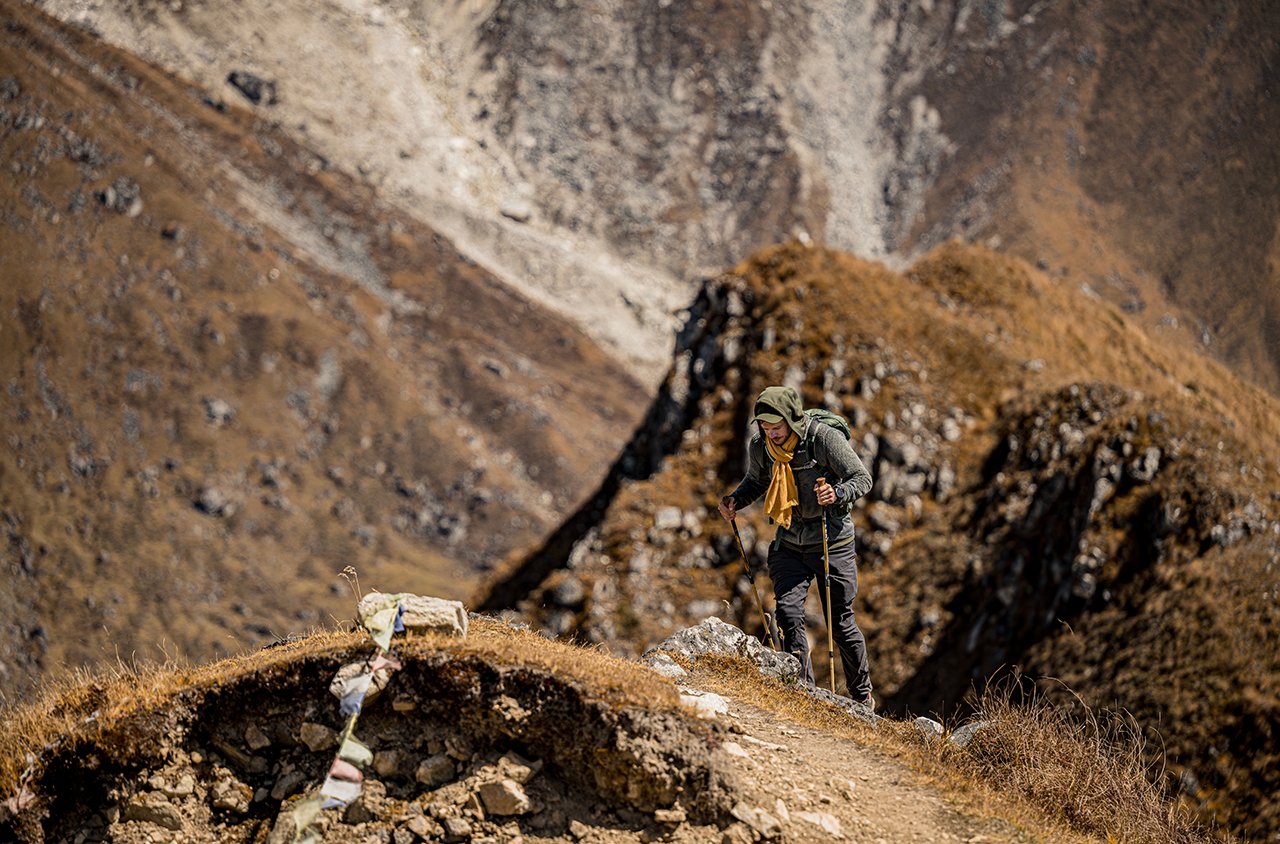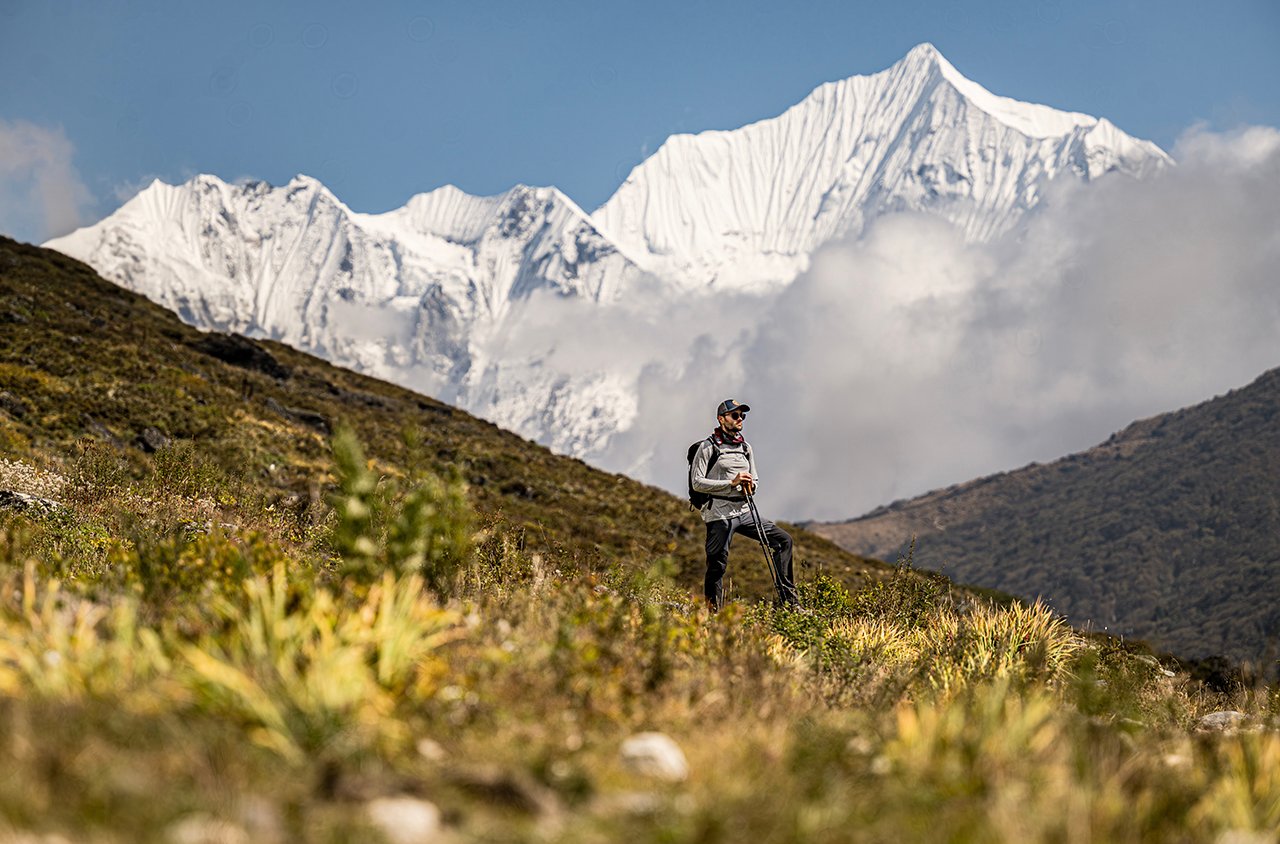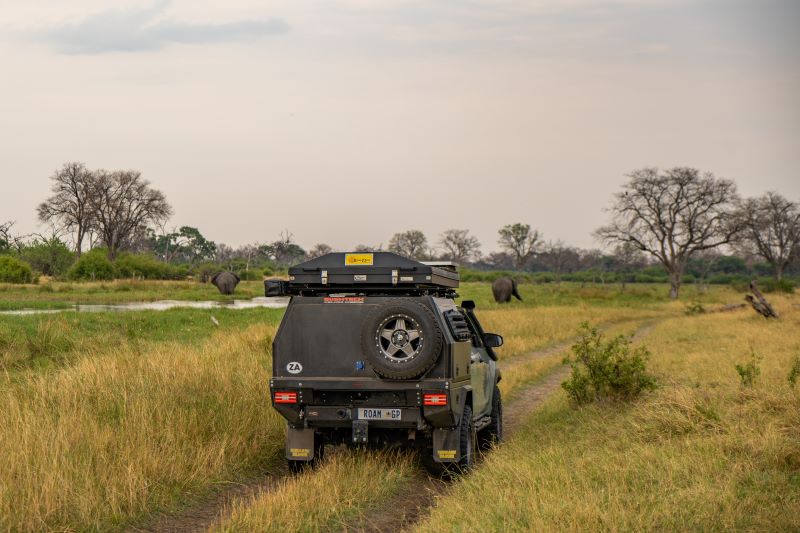
Alone in the Arctic with Jim Baird
Jim Baird is a Canadian videographer, photographer, freelance writer, and adventurer, best known for his unbelievable canoeing skills as well as surviving in harsh outdoor scenarios. He recently teamed up with Garmin to pursue his dream of traveling through the cold and desolate arctic territory.
Last March, Jim and his loyal dog Buck hauled toboggans across Nunivak’s Ungava Peninsula – a 230-mile arctic winter journey self-propelled and unassisted for more than 30 days. The entire route took place about 300-miles north of the tree line and 400-miles north of an organized system of roads. Their trip began in Kangiqsujuaq, an Inuit community on the south coast of Hudson Straight, and followed a westerly bearing to the hamlet of Akulivik, on the eastern coast of Hudson Bay.
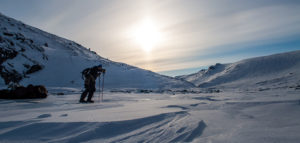 “The Ungava Peninsula separates the waters of Ungava Bay and Hudson Strait on its eastern side, from those of Hudson Bay on its western coast. Serious adventurers have crossed the Peninsula by canoe in summer and in winter by dog team or ski-doo. Before me, the only other recorded winter crossing on foot was in 1902, and to my knowledge, it has never been crossed via its mountainous northern reaches until I completed my solo crossing in May,” Baird explained.
“The Ungava Peninsula separates the waters of Ungava Bay and Hudson Strait on its eastern side, from those of Hudson Bay on its western coast. Serious adventurers have crossed the Peninsula by canoe in summer and in winter by dog team or ski-doo. Before me, the only other recorded winter crossing on foot was in 1902, and to my knowledge, it has never been crossed via its mountainous northern reaches until I completed my solo crossing in May,” Baird explained.
One vital tool that Jim carries on all of his adventures is his DeLorme inReach global satellite communicator. With this device, Jim is able to stay in touch with the connected world he left behind. He can send texts to family back home, track specific waypoints, and even update his Facebook and Twitter pages.
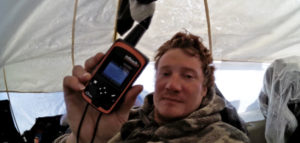 “The real reason I bring inReach with me is for an emergency communication device. I’ve had my InReach for about three years and have used it on several trips now. The device was very effective for texting my brother (and other contacts) as well as for updating my social media accounts. The ability to post to my social channels with my location link made it engaging, and even somewhat suspenseful for people to follow me. This also adds an additional element of safety. It holds its power very well even in the cold. Typing on the device is slow, so messages are usually short, but I had no problem sending and receiving messages while in the mountains and in blizzards,” Baird said.
“The real reason I bring inReach with me is for an emergency communication device. I’ve had my InReach for about three years and have used it on several trips now. The device was very effective for texting my brother (and other contacts) as well as for updating my social media accounts. The ability to post to my social channels with my location link made it engaging, and even somewhat suspenseful for people to follow me. This also adds an additional element of safety. It holds its power very well even in the cold. Typing on the device is slow, so messages are usually short, but I had no problem sending and receiving messages while in the mountains and in blizzards,” Baird said.
There are many reasons to carry an inReach when traveling outside of cell phone range, but the most important reasons are safety and assurance. Whether it’s checking the weather, using the mapping functions, or messaging someone from back home, the inReach helps you adventure with confidence.
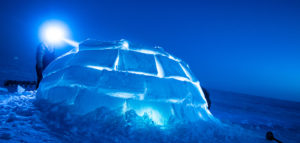 “I did feel safer with the InReach on me. I found the InReach very useful for receiving weather reports that my brother sent to me and on a couple occasions, it gave me a head start in rigging a tight camp before severe winter storms hit. I’ve also had up-to-date tidal info relayed to me with the device and have used it several times to rearrange pick-up locations due to weather conditions at the end of my trips,” Baird explained.
“I did feel safer with the InReach on me. I found the InReach very useful for receiving weather reports that my brother sent to me and on a couple occasions, it gave me a head start in rigging a tight camp before severe winter storms hit. I’ve also had up-to-date tidal info relayed to me with the device and have used it several times to rearrange pick-up locations due to weather conditions at the end of my trips,” Baird explained.
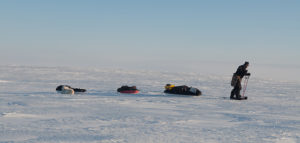 Join the adventure and follow Jim Baird here as he creates and shares videos, photos, and blogs from his journeys using Garmin products. Check out Jim’s video below using his Garmin VIRB XE action camera and don’t forget to share your exciting adventures with us on Facebook, Twitter, Instagram and use #HaveNoLimits.
Join the adventure and follow Jim Baird here as he creates and shares videos, photos, and blogs from his journeys using Garmin products. Check out Jim’s video below using his Garmin VIRB XE action camera and don’t forget to share your exciting adventures with us on Facebook, Twitter, Instagram and use #HaveNoLimits.

